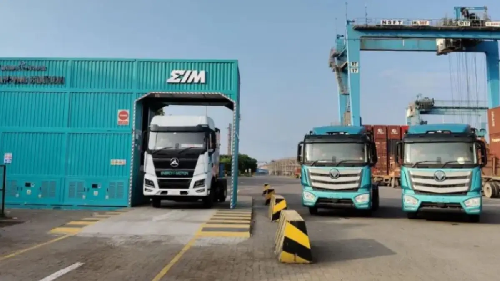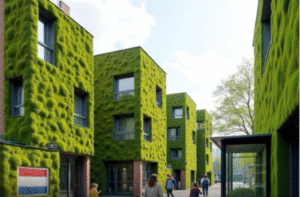In a landmark move set to redefine the country’s logistics sector, Union Minister for Road Transport and Highways, Nitin Gadkari, today inaugurated India’s first commercial electric truck battery swapping-cum-charging station.
The facility, built by Energy in Motion at the Delhi International Cargo Terminal Private Limited (DICT) in Panchi Gujran village, Sonipat, is strategically located on the vital GT Road corridor. It is seen as a critical step toward electrifying India’s heavy-duty freight transport and achieving the government’s ambitious clean mobility goals.
The biggest benefit of the new station is its potential to eliminate the long downtimes associated with traditional EV charging. The battery swapping technology allows electric truck batteries to be changed in approximately seven minutes, a crucial factor for a logistics industry where minimizing downtime is paramount to efficiency.
Speaking at the inauguration, Minister Gadkari hailed the initiative as “historic” and a powerful step toward a “diesel-free transport future.” He urged transporters to transition from diesel and petrol to electric and biofuel alternatives, highlighting the significant economic advantages.
“India spends nearly ₹25 lakh crore annually on fuel imports. If we save this money by using alternative energy, it will be invested in India’s development and help us move faster towards the dream of a developed India,” Gadkari stated.
The Minister underscored that the switch to electric freight vehicles is a core part of the strategy to lower the national logistics cost, which is currently significantly higher than in comparable economies like China. The government has set a target to bring this cost down to single digits (below 9% of GDP) by December 2026.
The event also focused on the broader vision of a ‘green energy hub,’ where farmers become ‘energy providers’ through the production of biofuels from agricultural residues. Gadkari noted that five million tonnes of stubble are already being used to produce bio-bitumen for road construction.
The facility in Sonipat is expected to greatly reduce carbon emissions in the high-traffic Delhi-NCR region, increase logistics efficiency, and minimize operating costs for fleet operators, signaling a new era of sustainable and cost-effective freight movement in India.
Union Minister for Heavy Industries and Steel, H. D. Kumaraswamy, was also present, affirming the central government’s coordinated support for the rapid adoption of electric vehicles across all categories.







